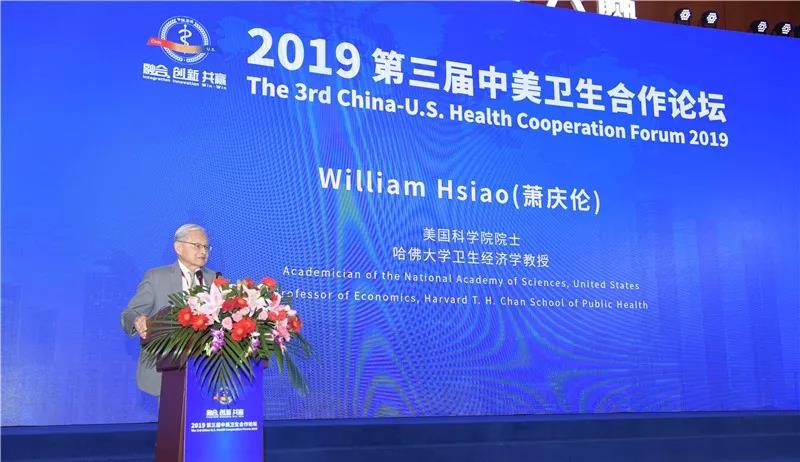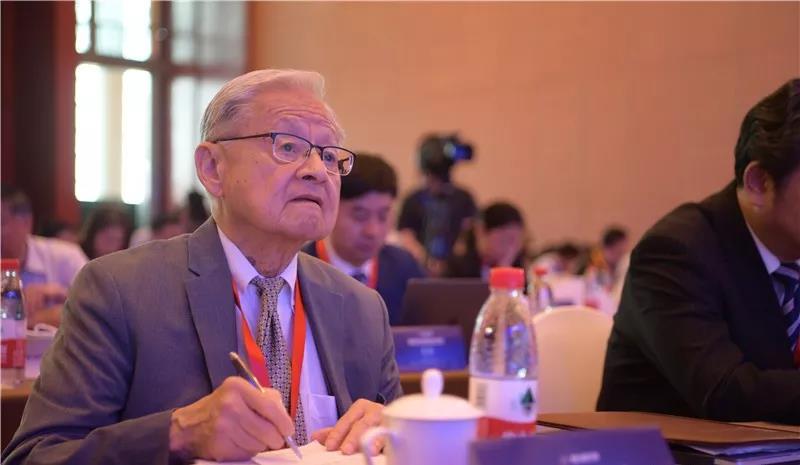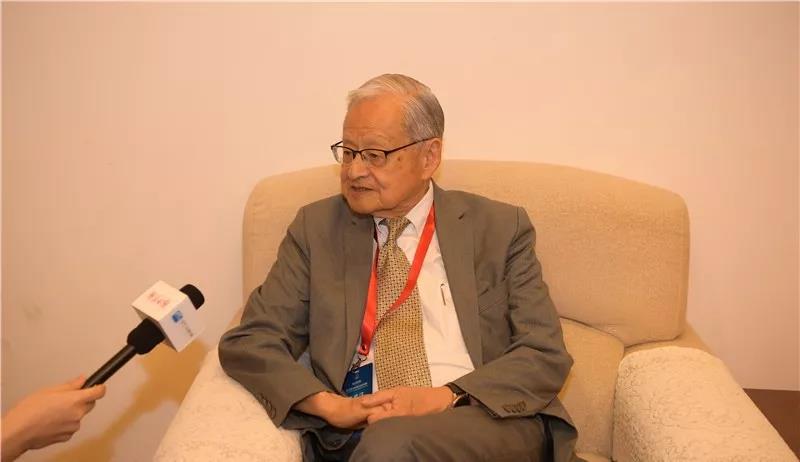9F, Zhongrui Jumei Building, 68 Jiuzhang Road, Suzhou Industrial Park, Jiangsu Province
Summit notice
Xiao Qinglun, academician of the American Academy of Sciences, prescribed "three antidotes" for China's medical reform
He was born in Beijing and moved to the United States with his parents as a child. Later, he received a doctorate in economics from Harvard University, becoming a well-known economist and senior actuary in the United States. Now in his octogenarian years, he constantly travels between the United States and China, "just to realize a dream of exploring the path of rural health reform in China." He is Xiao Qinglun, an academician of the American Academy of Sciences, a professor of health economics at Harvard University, and a foreign consultant to the Expert Committee of the State Council's Leading Group on Health Reform
On June 22-23, under the guidance of the China Hospital Association and the Jiangsu Provincial Hospital Association, hosted by the Xinhua Daily and the Jiangsu Provincial People's Hospital, and hosted by the Jiangsu Cancer Hospital, the First Affiliated Hospital of Suzhou University, the Children's Hospital of Suzhou University, the Suzhou Hospital Association, and Jiangsu Aiwo Medical, the 2019 Third Sino American Health Cooperation Forum was held on the bank of Jinji Lake in Suzhou, with Xiao Qinglun as an important guest, He delivered a keynote speech with the theme "China's Medical Reform, Three Antidotes". On the sidelines of the forum, relevant media conducted exclusive interviews with them

"Three Antidotes" in China's Medical Reform
Academician Xiao Qinglun has served as a health economic advisor to the health system reform policies of the three presidents of Nixon, Carter, and Clinton in the United States, and can be said to have been committed to research in the field of health reform. From 1979 to now, Xiao Qinglun has continuously focused on China's medical field for 40 years, and has been committed to studying the path of China's medical reform, actively providing advice and suggestions for China's medical reform
Xiao Qinglun has prescribed "three antidotes" for China's medical reform: first, transform into a grassroots based medical system, and establish a medical union with Chinese characteristics; Secondly, implement systematic hospital reform and reshape the medical service system. For example, reforming the salary system for medical personnel, encouraging excellent work and benefits, promoting the professionalization of deans, and improving the internal management level of hospitals; Third, return to the public welfare of public hospitals and reshape doctors' medical ethics
Explore China's rural medical reform from the western region

"I have found that there is a dense distribution of talents along the eastern coast, and most foreign exchange and cooperation projects are concentrated in the eastern region, while the western region has few resources and talents. Therefore, I want to focus my main research work on the western region. Taking Ningxia as a pilot, I will establish a model to promote hierarchical diagnosis and treatment, with a view to enabling people in poverty-stricken areas to enjoy basic medical care."
How to establish a model is divided into three parts: first, fund allocation, second, incentive mechanism transformation, and third, village medical training. In terms of fund allocation, a prepayment system should be implemented to ensure that part of the funds at the county hospital level must be allocated to the rural level. In terms of incentive mechanism, a win-win bonus system is implemented. Township health centers should supervise village doctors. If village doctors do a good job and township supervision is in place, both parties can receive bonuses. County hospitals help improve the ability of township doctors and guide patients to see doctors in the township instead of rushing to the county hospital. Both parties can also receive rewards for doing well in this regard
"In the training of village doctors, the first step is to improve their professional skills through learning professional knowledge, and the second step is to improve their Internet usage ability, because the establishment of patient files in rural areas is a difficult problem." Xiao Qinglun's pilot project in Ningxia has taken more than three years from the construction of paper files by village doctors to electronic files. The current achievement is the comprehensive promotion of the pilot model in Ningxia Autonomous Region, Qinghai is also planning to learn this model
China needs medical personnel willing to take root at the grassroots level
"The most basic thing about doing research is to sink. When I was doing a pilot project in Ningxia, I was staying with local farmers, eating and living with them." In the process, he realized a problem: "What China lacks most is not the highest medical and technological talent, but medical personnel willing to take root at the grassroots level.". From his experience in rural areas, Xiao Qinglun learned that grassroots work is hard and the salary level is very low. Apart from the local "barefoot doctors" who have been trained to become village doctors, it is difficult to retain talents. "If you learn well, you need to stay."

"To alleviate this problem, first of all, we need to clearly choose who to cultivate. For children who come out of small rural cities to study medicine, they may be more willing to stay in their hometown, but the proportion of urban children in medical schools is still high. Therefore, to some extent, the admission of medical schools is biased towards rural areas. Secondly, the salary of rural hospitals should also be raised to make people willing to stay." Xiao Qinglun believes, It is necessary to work together in various ways to form a joint force in order to retain medical talents in rural areas

